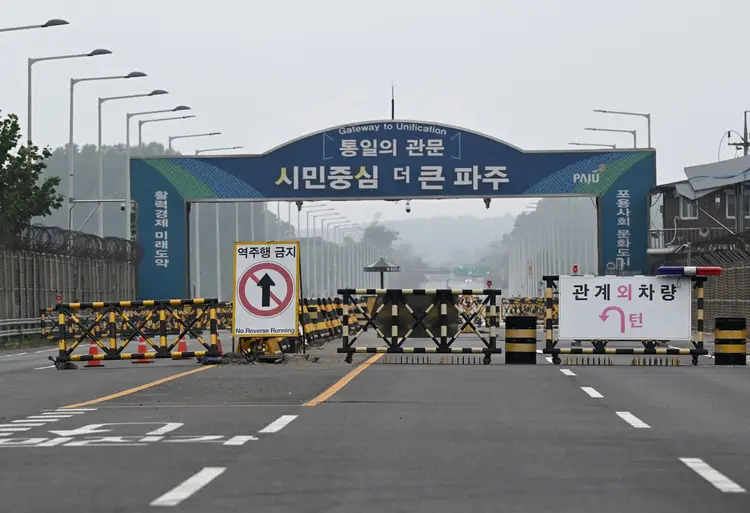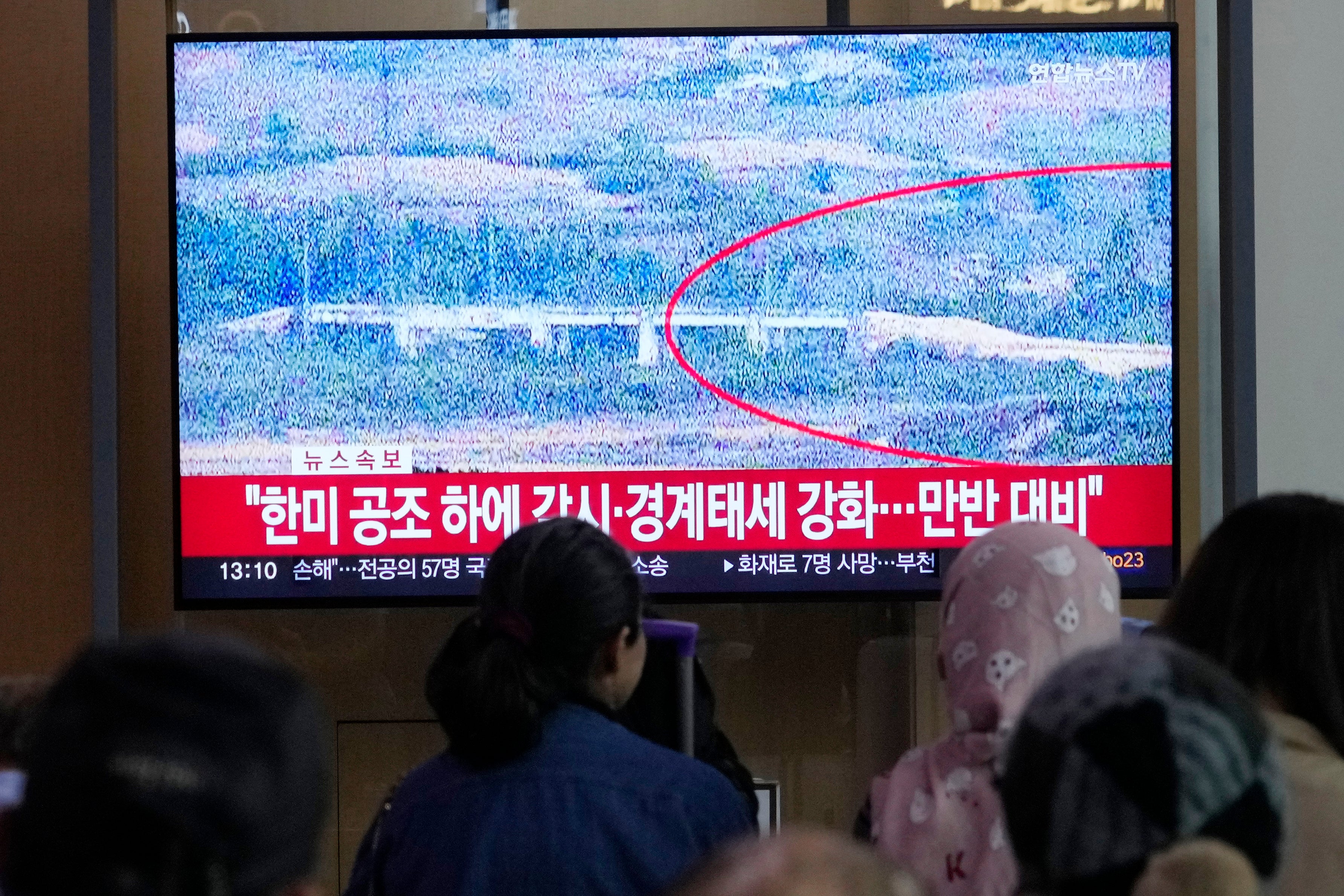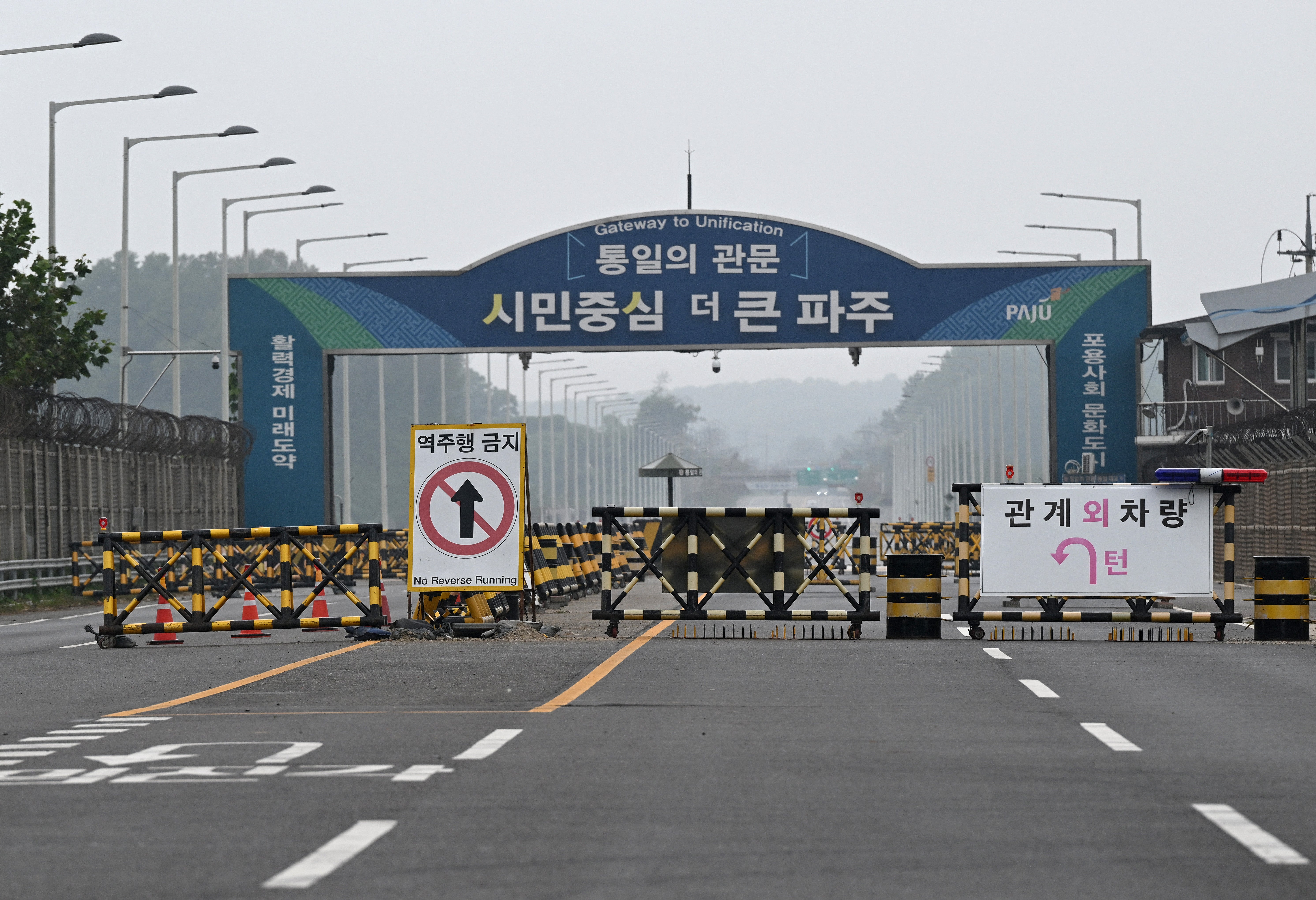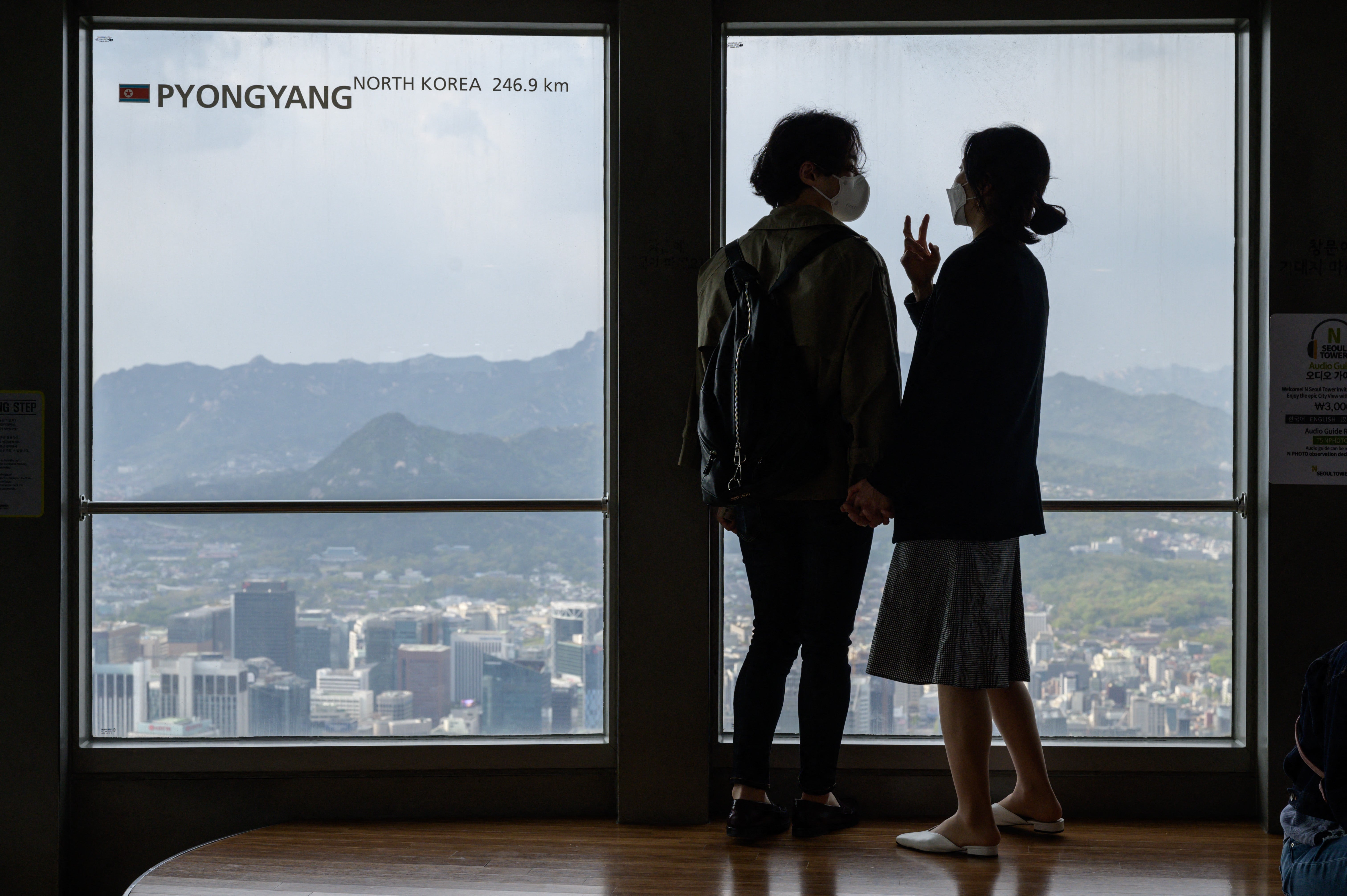South Korea fires warning shots after North Korea blows up road connecting them

Get Free Real-Time Breaking News Alerts!
Subscribe To Our Free Breaking News Alerts
Subscribe For Free Breaking News Alerts
I would like to receive emails regarding offers, events, and updates from The Independent. Please review our privacy policy.

South Korea discharged warning shots following North Korea's detonation of parts of roads connecting the two countries. This incident escalated the exchange of hostile threats between the two nations, which are currently experiencing heightened tensions in the region.
On Tuesday, Pyongyang took action to demolish its portion of the roads, following its promise to sever the road and rail connections that had previously represented a spirit of friendly collaboration and the hope for future peace.
The decision followed North Korea's announcement that its military was prepared to respond forcefully to claims that South Korea had sent drones into Pyongyang. The nation's defense ministry cautioned that a "war could erupt at any time" on the Korean peninsula.
The South Korean military announced that it discharged warning shots after observing explosions coming from the other side of the border, although they did not share any specifics about the incidents.

According to the Joint Chiefs, as reported by Yonhap news agency, the North Korean military carried out explosions around midday, which are believed to be targeting the Gyeongui and Donghae routes. They are also reportedly engaged in further operations with heavy machinery.
It wasn't clear right away whether the North had reacted to the South's gunfire.
A video released by the South Korean military captured a plume of white and gray smoke billowing up after an explosion on a road close to the border town of Kaesong. The footage also depicted trucks and excavators arriving to remove the rubble. Another video displayed smoke rising from a coastal road in the eastern border area.
Seoul announced that it is enhancing its military preparedness and monitoring efforts in collaboration with the United States.
Despite the rising tensions on Tuesday, experts believe it is improbable that North Korea would initiate a surprise attack on the South. Such an action would likely provoke a robust response from Seoul, supported by the United States.

In January, Kim Jong-un, North Korea's leader, announced that his country had abandoned any hopes for a peaceful reunification of the Korean peninsula. He officially identified South Korea as North Korea's "consistent main enemy."
This represented a departure from the leaders before him, who held aspirations of bringing the peninsula together, likely according to North Korea's conditions.
Last week, the North's military revealed its intention to fully isolate its territory from the South and notified the US about this decision in order to avoid any misunderstandings or inadvertent clashes.
According to reports, the North took down streetlights and set up landmines along its portion of the Gyeongui and Donghae roads. Additionally, Pyongyang sent troops to construct anti-tank defenses and strengthen the barbed wire fences in its area of the demilitarized zone.

On Monday, Mr. Kim convened a meeting with his military and security advisors to address the South's supposed drone provocations, according to reports from the state media outlet KCNA.
During the meeting, Mr. Kim referred to the drone flights as a significant provocation from the enemy. He outlined certain tasks concerning "swift military response" and the functioning of the nation’s "war deterrent" to protect its sovereignty.
For the first time, North Korea has claimed that its opponent has sent drones to release propaganda flyers within its borders. Throughout the year, both sides have consistently blamed one another for launching balloons filled with waste and leaflets into each other's regions.
In 2020, North Korea destroyed a vacant liaison office building that had been constructed by South Korea just across the border. This act was a response to the leafleting efforts carried out by the South.
The two Koreas remain in a state of war in a technical sense because the conflict from 1950 to 1953 ended with an armistice rather than a formal peace agreement.
Further contributions from various news agencies.













































